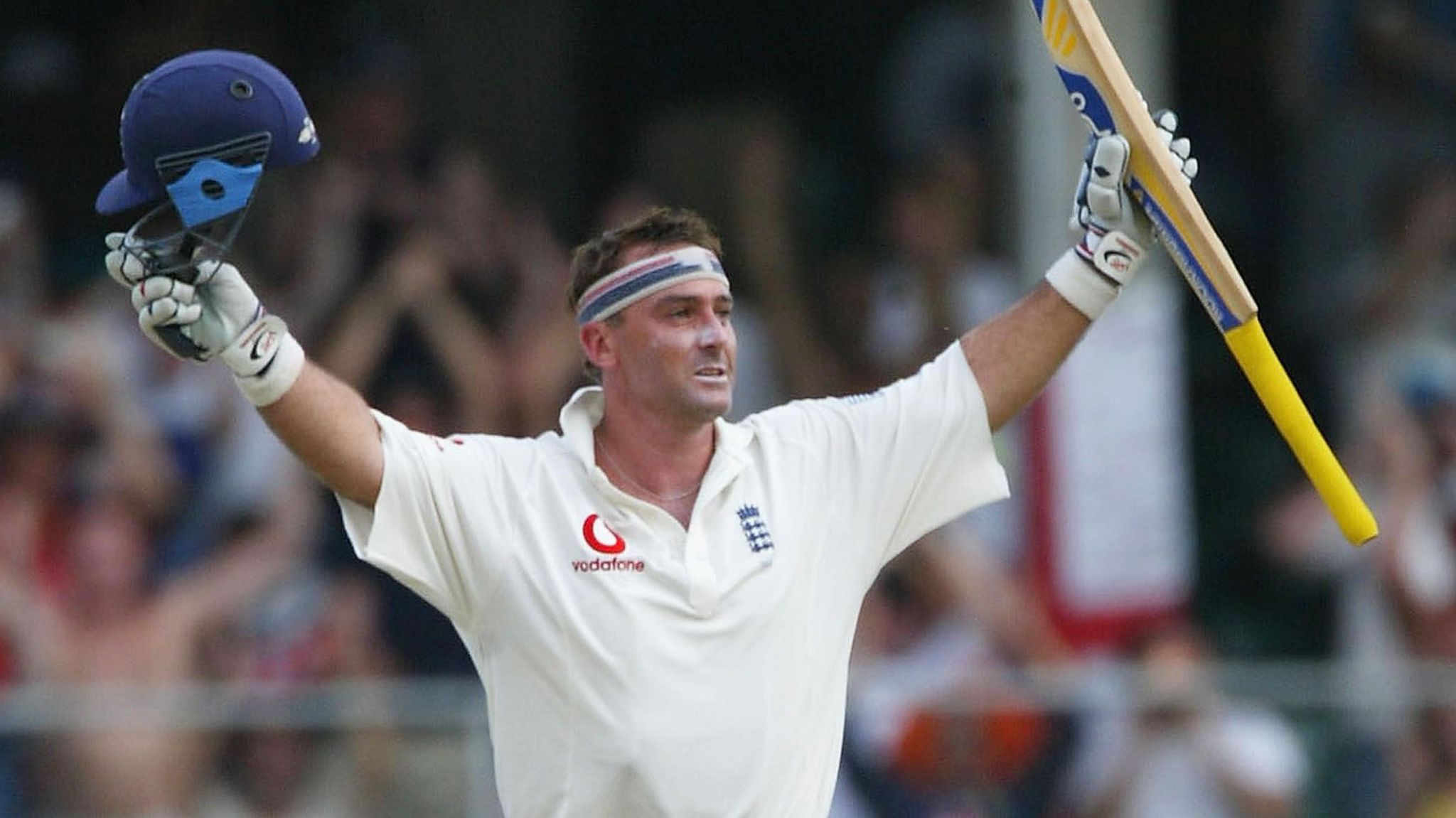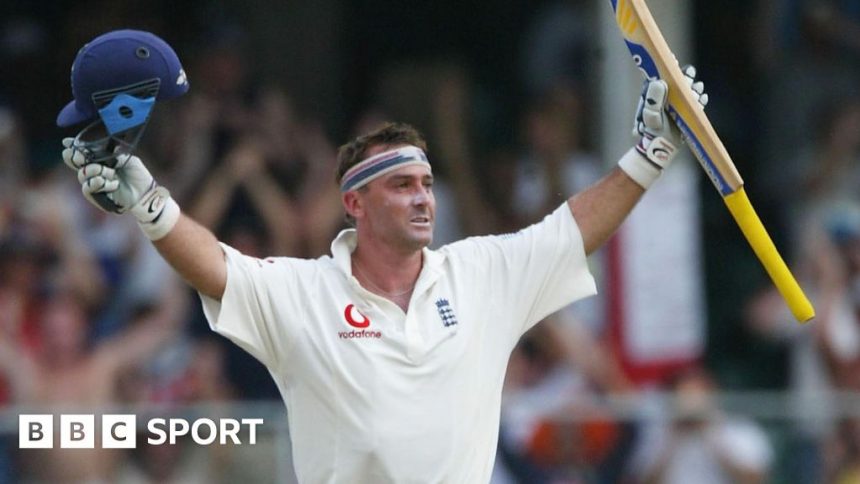‘Thorpe was an underrated rock fans could rely on’

Thorpe scored 21,937 first-class runs for Surrey and England
-
Published
Graham Thorpe, who has died aged 55, will be remembered as one of the best batters of his generation.
Across his 100 Tests between 1993 and 2005, Thorpe was a world-class left-hander in a struggling England side and a key player in the upturn that followed.
With his trademark headband in place, he could grind out runs against some of the game’s greats or lead a brave counter-attack with a flurry of boundaries.
Between his playing and coaching careers, Thorpe spent nearly 30 years as a key part of the England set-up.
He was a Surrey legend and, with bat in hand, he was as complete as England have seen.
England’s rock
Thorpe’s skill was developed on the club grounds of Surrey, the county he would go on to represent throughout his entire first-class career from 1988 to 2005.
On his England debut against Australia in 1993 he scored a second-innings 114 not out, having come in with the hosts in a precarious position.
It was a clear sign of what was to come.
Thorpe, who hit 2,380 runs in 82 one-day internationals, would go on to score 6,744 runs in 100 Tests at an average of 44.66, with 16 hundreds.
He scored a swashbuckling 200 not out, his highest Test score, from 231 balls against New Zealand in 2002, having dug in for 118 from 301 against Pakistan in Lahore 16 months earlier – a knock containing just two boundaries.
Fearless against pace and one of England’s best against spin, Thorpe averaged 45.17 at home, 47.85 in Asia and 48.18 in Australia – a player for all situations.
Ask his former captain Nasser Hussain to rank England’s best players of that era and Thorpe’s name would be near the top, if not number one, in the list.
“When people reel off the list of England greats, he seems to slip people’s minds, but he was a man for a crisis, for a battle,” Hussain said in 2021.
Thorpe was the stern-faced rock in a batting line-up that faltered all too often – the one England fans could usually rely on.
In one of that side’s greatest victories, against Pakistan in Karachi in 2000, it was Thorpe who hit the winning runs in the gloom, ending 64 not out.
He was also a fine fielder and particularly accomplished in the slips.
-
-
Published58 minutes ago
-
Thorpe (left) led England to victory in a fourth-innings chase in the dark in Karachi to earn a Test and series victory over Pakistan
But it was not all success.
After he had previously missed tours because of the challenges of life on the road, Thorpe’s first marriage publicly broke down in 2002.
He subsequently took an indefinite break from cricket and, despite initially making himself available, pulled out of England’s 2002-03 Ashes squad to face Australia.
Thorpe would miss more than a year at international level, but he returned with what he described as his finest innings.
After being recalled in 2003 for the final Test of the summer at The Oval, he scored 124 in the first innings against South Africa.
In typically composed style he held his arms aloft and punched the air after reaching three figures, his home crowd giving an emotional, extended ovation from the stands.
“There were times when I thought I wasn’t going to play again and more importantly I had to wipe away the memory of how I walked away from cricket last year,” he said afterwards.
“I didn’t want to leave cricket like that, and you couldn’t have written it better to get a century on your home ground.”
That innings marked the start of a resurgence for Thorpe in the latter years of his career.
After his recall, he scored 1,635 runs at 56.37 as England’s fortunes improved under new captain Michael Vaughan.
Thorpe, dubbed the grandad of the team by Vaughan,, external hit five centuries in that period, including one packed with his trademark grit, batting with a broken finger against West Indies.
He played his 100th Test against Bangladesh early in the 2005 season, but it proved to be his last.
Having played in five unsuccessful Ashes series, Thorpe was left out when Vaughan’s side famously won back the urn in 2005, the younger batting options of Ian Bell and Kevin Pietersen preferred.
After retiring that summer, Thorpe began coaching in Australia with New South Wales.
He soon returned to work with Surrey and by 2010 was again involved in the England set-up, as batting coach of the development Lions side before moving up to assist the senior men’s side.
He left his role as assistant coach in February 2022 after a 4-0 Ashes defeat in Australia, but also had been part of the backroom team for England’s 50-over World Cup win in 2019.
After leaving England he was appointed Afghanistan men’s head coach in March 2022 but did not oversee a match after he fell ill.
Whether batting or coaching, Thorpe was a fixture on the international scene for almost three decades.
Thorpe (right) led England during the 2021-22 Ashes series in Australia when coach Chris Silverwood was absent because of Covid-19





